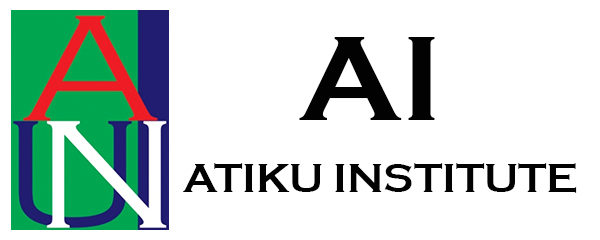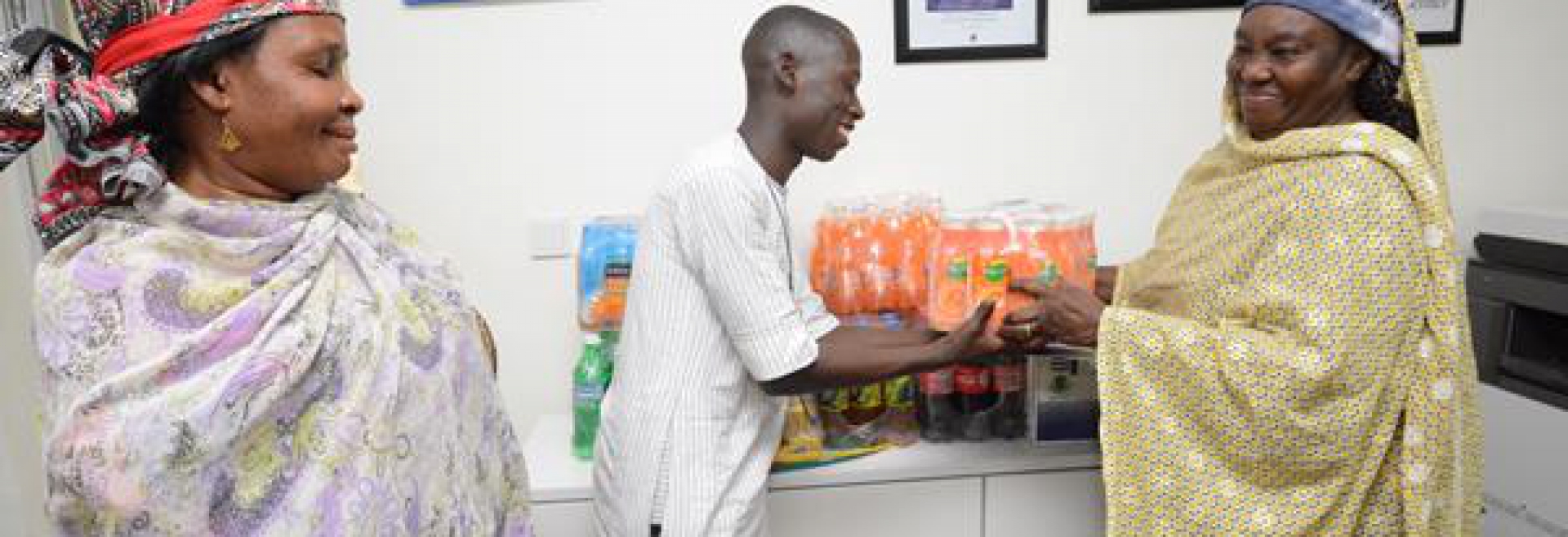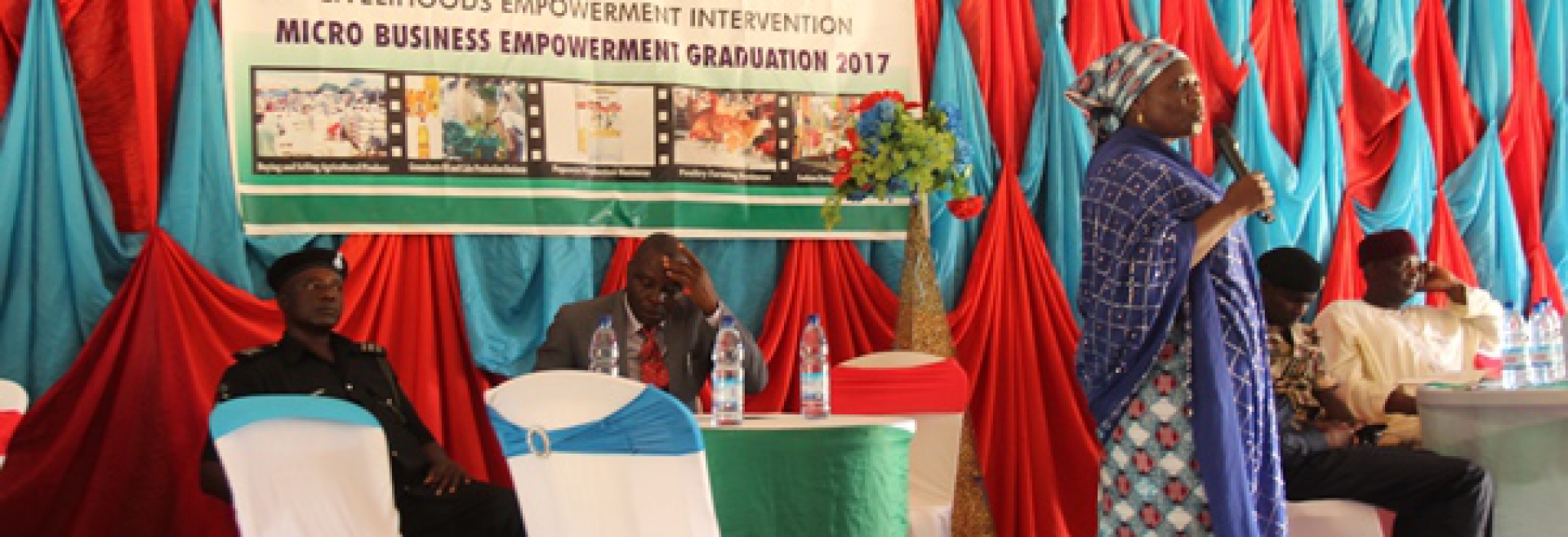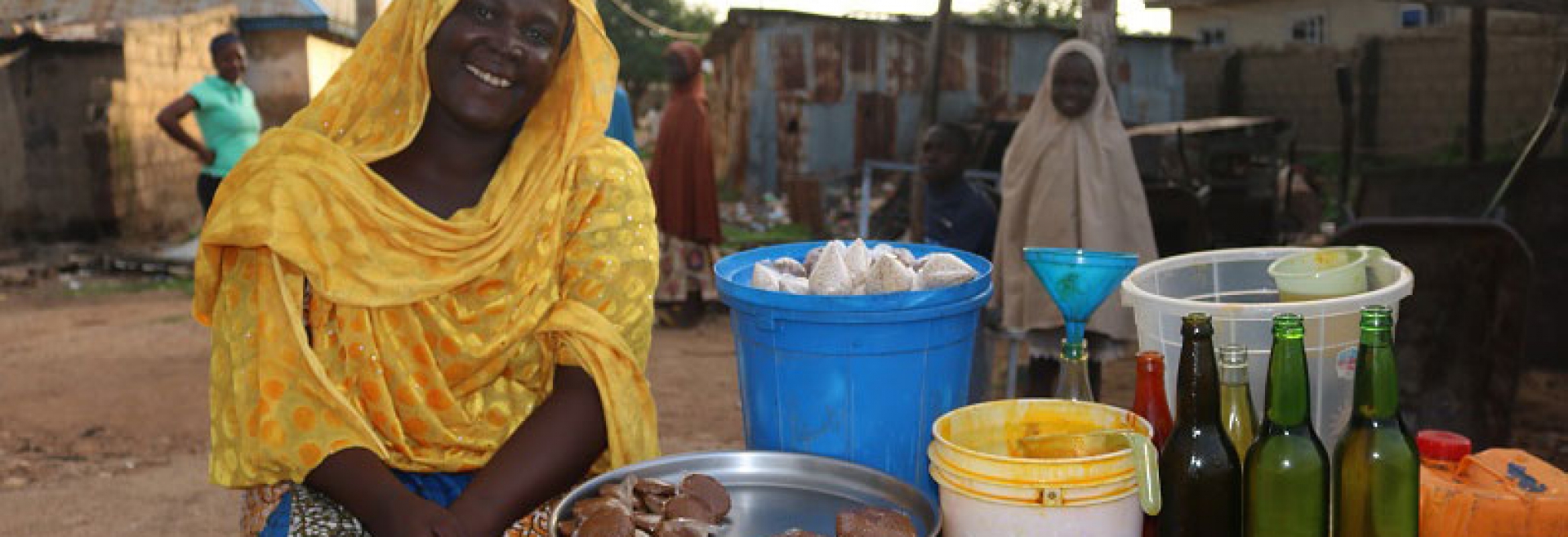
AUN and UNHCR Collaborate to Support Livelihoods of IDPs
On May 19th 2016, AUN, in collaboration with the UN High Commission for Refugees or UNHCR, officially launched the “Protection Through Livelihoods Project,” a ₦40 million program that trains internally displaced persons living in Adamawa State in income-generating skills.
Head of Field Unit at the UN Commission, Ms. Anchinesh Maheteme, observed at the AUN launch that the Boko Haram insurgency has created economic hardship for many families who have become displaced from their homes.
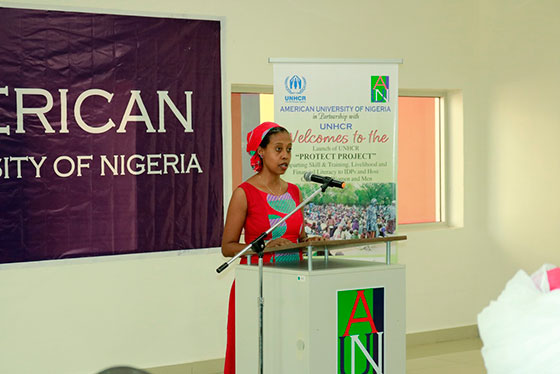
This is the second phase of the Commission’s collaboration with AUN. Ms Maheteme noted that the work that AUN has done in training the IDP during the first collaboration in 2015 was impressive. It was originally targeted at 300 women (200 IDPs and 100 from host communities). “…but AUN went beyond the target and trained 450 women. And we are very grateful for this.”
Ms Maheteme said that based on the assessment of the impact of this first project, it was discovered that the project is already enriching the lives of the women who were trained last year. “…Quite a number of the graduates are using their skill to generate income and help their families…That’s why we are doubling the target to 600 and we are going to continue the partnership.”
The project is the second phase of its kind with the goal of delivering support through community mobilization, skills acquisition, and income generation as well as through financial literacy to the most vulnerable displacees and host community women and men.
She announced that the new partnership will include men. “Based on the performance on ground, the seriousness that AUN has shown, as well as in the implementation of the project last year, UNHCR decided to continue its collaboration in partnership with AUN in 2016…This time not only women, we’re trying to include the youths particularly men, because it is important we prevent idleness also among the men.”
President Ensign thanked the Commission for its willingness to assist with the challenges facing the region. Dr. Ensign said that the benefits of empowering women are enormous and includes smaller, more educated, and healthier families.
“We are so grateful that you are helping us generate income for these women.”
The Administrator of Grants, Mr. Audu Liman, said a program such as this empowers women and gives them voices. “When you do that you are giving her [woman] a voice and when you give her a voice, you have given her the desire and ability to say “No” to gender-based violence, to say “Yes” to the education of her child, and to say “Yes” to health-seeking behavior.”
By Benjamin Yakubu
